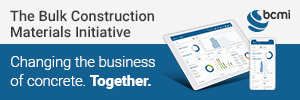 |
||||||||||||
|
||||||||||||
Engineering
The American Concrete Institute's Spring Convention was held virtually from March 27 through April 1. The following is a summary of committee activity involving NRMCA staff representation: 122 – Energy Efficiency of Concrete and Masonry Systems – The committee is progressing with development of two new standards. One standard will provide guidance on dealing with thermal bridges in concrete and masonry structures. This standard has received comments from the ACI Technical Activity Committee (TAC) and developed responses. The other standard will provide the quantitative information required to model concrete and masonry building envelope components for use in building energy models and is being submitted to TAC. The expectation is to complete both before the energy code hearings in 2022. Scott Campbell maintains representation on ACI 122. 132 – Responsibilities in Concrete Construction – The committee has developed a new guide to responsibilities in concrete repair and rehabilitation. It is revising its guide to responsibilities in concrete construction, ACI 132R. It is also working on a technical note on responsibilities associated with acceptance testing of concrete specific to care of test specimens at the jobsite. Colin Lobo maintains representation on ACI 132. 201 – Durability – The committee is revising the guide to durable concrete (201.2R). Chapter 9 on Corrosion is being updated with discussions on proposing modifications to ACI 318 exposure classes and concrete requirements. The new document will contain updated discussion on alkali aggregate reactions, including guidance for repair. The committee is balloting a Tech Note (TN) on iron sulfide minerals in aggregate, specifically Pyrrhotite and the one on physical salt attack. The committee was asked to provide guidance as to whether vertical members with specified strength greater than 10,000 psi should be air-entrained if exposed to freeze/thaw conditions and moisture. The guide will also address Microbial Induced Corrosion (MIC) of Concrete. Karthik Obla maintains representation in ACI 201. 211 – Mixture Proportioning – In revising its primary document on mixture proportioning (ACI 211.1), the committee addressed the comments on the ballot for completing numerical examples of mixture proportioning. A document on developing 3-point curves for trial batches will be reworked following the ACI review process. Task groups are addressing comments received on the new ballot on assessing aggregate gradations. A task group is working on a new report on aggregate packing models. Karthik Obla maintains representation on ACI 211. 214 – Strength Tests – Karthik Obla provided a draft to the committee on developing acceptance criteria based on statistical concepts for tests other than strength. This will be developed as a Tech Note. The committee’s revised guide for obtaining cores and interpreting test results (214.4R) will be published shortly. The committee is working on Tech Notes on using two instead of three 4x8 in. cylinders for acceptance testing and cylinder vs cube strengths and a new Tech Note on using tables to calculate required average strength for various statistically based risk levels relative to the ACI acceptance criteria. Karthik Obla maintains representation on ACI 214. 216 – Fire Resistance and Fire Protection of Structures – The ACI 216 Committee continues to work on revising ACI 216.1, Code Requirements for Determining Fire Resistance of Concrete and Masonry Construction Assemblies. The next edition of the standard will include a new chapter on loads in fire addressing strength reduction factors, load factors and load combinations, and fire scenarios in addition to the ASTM E119 standard fire curve. In parallel, a task group of the committee is developing a new rational design guide on determining fire resistance. The document will provide guidelines for determining fire resistance through analytical methods in addition to the existing prescriptive methods and will be referenced by the revised ACI 216 standard. The technical committee is also involved in the development of a new chapter on fire in ACI 562, Code Requirements for Assessment, Repair, and Rehabilitation of Existing Concrete Structures. The chapter will focus on the impact of fire on repair, including post-fire event assessments of existing structures as well as consideration of external factors such as fiber-reinforced fibers and anchorage. Provisions for assessments will be prescriptive, with an emphasis on level of damage and repair of concrete. Shamim Rashid-Sumar maintains representation on ACI 216. 232 – Fly Ash – A Tech Note addressing specification limits on fly ash in concrete was finalized and published. A Tech Note on potential use of harvested fly ash from impoundments is being developed. There was an update on the various research projects addressing fly ash supply. Karthik Obla maintains representation on ACI 232. 240 – Pozzolans – The Tech Note on “What is a Pozzolan” has been finalized by the committee. Karthik Obla maintains representation on ACI 232. 301 – Specifications for Structural Concrete – The subcommittee responsible for Section 4 has identified several revisions that will be developed as ballots for consideration. The main committee met to discuss revisions being discussed by the other subcommittees responsible for the 14 sections of ACI 301. A revised ACI 301 specification is expected to be published after 2025. Colin Lobo maintains representation on ACI 301. 318 – Building Code for Structural Concrete – ACI Subcommittee A on concrete materials is working on several code change proposals to include clarification on chloride limits and alternative cementitious materials to include a reference to ground glass pozzolans, acceptance process for density of lightweight concrete, inspection of concrete consolidation in ICF construction, clarification of specification items to be addressed by the designer for concrete mixtures and acceptance testing in Chapter 26 on construction documents. ACI Subcommittee D, on structural members, has advanced the NRMCA-sponsored code change proposal clarifying that ICF walls are not limited to two stories. Subcommittee N on sustainability has developed the concept of a new appendix in 318 that will address including sustainability in designing structures. The appendix will address optimizing for sustainability the design system, concrete materials for reduced environmental impact and system resilience. The subcommittee will meet more frequently to complete the appendix for proposed ballot to the main committee. The 318 main committee has established its schedule to complete its work for publishing the revised 318 Code by 2025. There are parallel codes being developed for prestressed concrete (319), post-tensioned concrete (320) and durability (321); these will be coordinated among these committees to avoid conflicts between the codes. The intent is that most of the requirements will be covered in ACI 318 and these codes, if finalized, will be referenced in ACI 318 to cover specific issues in more detail. The committee worked through several design-related code change proposals that have been balloted and approved a few. There will not be a supplement to the code published before 2025. ACI has released an electronic version ACI 318 plus that provides links to various documents, 3-dimensional images and the ability of the user in include notes to each design provision. This is available as a separate subscription from ACI. Colin Lobo maintains representation on Subcommittees A and N and on the main 318 Committee. 321 – Concrete Durability Code – ACI 321 is a new committee formed last year to develop a code for durability. The committee has developed more detailed exposure classes than currently defined in ACI 318 and is working to finalize these before establishing requirements for concrete. Requirements for concrete will include both prescriptive and performance alternatives. This code could be used or adopted for structures broader than buildings covered by ACI 318. 325 – Concrete Pavements – The committee currently has four documents under development or revision. The committee is rewriting ACI 325.12R-02 (Reapproved 2014): Guide for Design of Jointed Concrete Pavements for Streets and Local Roads led by Brian Killingsworth. Revisions to this document have been completed and will be balloted over the summer. The committee is developing ACI 325.YR Report on Precast Concrete Pavements - State of the Practice which is based upon work completed by Tayabji for SHRP2. Work is also underway to update ACI 325.ZR: Design and Construction of Continuously Reinforced Concrete Pavements. This work will continue over the next year. ACI 325.13R-06: Concrete Overlays for Pavement Rehabilitation has also been updated and will be balloted over the summer. Killingsworth will ensure that considerations for streets and local roads will be included in all documents. Killingsworth maintains representation on ACI 325 on concrete pavements. 329 – Performance Criteria for Ready Mixed Concrete – The committee balloted and approved additional summaries of test methods that will be included in Chapter 5 of the proposed guide performance specification that is intended as information to the specifier. A draft of Section 1 of a specification (in MasterSpec) format with advisory information will be balloted shortly. Karthik Obla and Colin Lobo maintain representation on ACI 329. 330 – Parking Lots – The ACI 330 Committee revised the Category D design charts in the ACI 330.2R-17 Guide for the Design and Construction of Concrete Site Paving for Industrial and Trucking Facilities document to accommodate a 20-year design. This change is to provide consistency with other 330 documents. The changes have been approved. The ACI 330R-08 document has been revised and will be known as the Guide for the Design and Construction of Commercial Concrete Parking Lots and Site Paving. It is scheduled to be published in 2021. The Committee is currently reviewing the specification and expects it to be ready for publication in 2022. Amanda Hult maintains representation in ACI 330.
Buildings
As a leading Environmental Product Declaration (EPD) Program Operator for the concrete industry, NRMCA recently verified another EPD, this one by Lehigh Cement. The EPD reports the impacts for two different cement products produced at the company's Redding, CA, plant. Verified cement products include Type I/II and Type II/V. The trend in reporting company and product environmental, social and governance practices is growing and, with environmental impact criteria being discovered in green building construction documents and specifications, procurement decisions are leaning beyond price and performance. When raw material suppliers demonstrate a lower embodied carbon for their customers they can provide them increasing business opportunities. Lehigh’s EPD was developed by Climate Earth and independently reviewed by Industrial Ecology Consultants. Collectively, Lehigh Cement and Lehigh Hanson Ready Mix have verified EPDs for the following facilities:
To date, the North American ready mixed concrete industry, including material suppliers, have invested into more than 80 verified EPDs with more than 35,000 products/mixes and is the leading material industry that reports environmental impacts. NRMCA-verified EPDs can be found here. Integral to the Build With Strength campaign, NRMCA promotes Strength Through Transparency for member and industry competitiveness in the green building marketplace and the trends toward product and company transparency. For support, training, sustainability strategy planning or program development, please reach out to NRMCA's James Bogdan at jbogdan@nrmca.org or 412-420-4138. 332 – Residential Concrete – The research funded by the RMC Research & Education Foundation at the University of Washington was presented to the above grade wall subcommittee. The work was very well received with several people asking how they can participate in the upcoming testing and looking at ways to incorporate the results in ACI standards. 522 – Pervious Concrete –The committee is working to address TAC comments on the 522R guide document. The committee is soliciting pervious concrete topics for research. Amanda Hult maintains representation in ACI 522. 555 – Recycled Materials – ACI’s TAC has advised the committee to split the existing document into three reports: 1. removal of hardened concrete; 2. reuse of hardened concrete; 3. unbound recycled concrete applications. Karthik Obla maintains representation in ACI 555. 560 – ICF Buildings – The committee is working on developing/updating its guide documents on design and construction of ICF buildings. Concrete Research Council (CRC) – The Council of the ACI Foundation selected eight research projects – four in materials and four in structural design – for funding in its 2021 cycle. Projects are supported by ACI committees and funded at a level of $50,000. There were in excess of 40 proposals submitted for funding. CRC also recognized Professor Michael Thomas for lifetime achievement for research in concrete with the Robert E. Philleo Award. Thomas is an instructor in the NRMCA Concrete Durability Course. Also recognized by the ACI Foundation were Antonio Nanni with the Boase Award for Structural Research and Claude Bedard with the Jean-Claude Roumain Innovation in Concrete Award. For more information, contact Colin Lobo at clobo@nrmca.org. SEO
Every now and then a class has a stellar performance and this year’s March online Plant Manager Certification class was one of them, reports NRMCA Vice President, Education, Eileen Dickson. The certification requires that attendees pass two exams and 93% did so. Additionally, 28% earned at least an A mark, at least 90%, on both. First in the class was Travis Cline from K. Barnett & Sons, Clovis, NM, with an average score of 96.5 on both exams. The others on this "A Team," in alphabetical order, were Christopher Busskohl, Kiewit Infrastructure West Co., Honolulu; Mike Caro, Mini-Concrete Materials, Inc., El Paso, TX; Ben Gleich, San Juan Construction, Inc., Kwajalein, Republic of the Marshall Islands; Tyler Hackney, Midwest Concrete Materials, Manhattan, KS; Brian C. Larson, Ready Mixed Concrete Company Lincoln, Syracuse, NE; Chance Namahoe, Kiewit Infrastructure West Co., Honolulu; Durwin Paul Reed, Jr., Chandler Concrete of Virginia, Check, VA; Eduardo Rodriguez, Superior Ready Mix, Houston; Marc Simmons, Kiewit Infrastructure West Co., Honolulu; William David Vorberg, VCNA Prairie, LLC, New Lenox, IL and Dodge Wallace, Helena Sand and Gravel, Helena, MT. There are two more 2021 Plant Manager Certification classes: online from May 14-24 and and in person in December in Orlando. Registration and more information for the May class can be accessed here. For more information, contact Eileen Dickson at edickson@nrmca.org.
Click here to view this month’s and all previous issues. For more information, contact Gary Mullings at gmullings@nrmca.org or Kevin Walgenbach at kwalgenbach@nrmca.org.
The 2021 Fleet Benchmarking Survey is filled out by industry fleet managers and/or financial managers early each year, based on data gathered from the previous calendar year’s performance. This year’s form includes a new section on automation, including the use of video-based driver safety, GPS tracking, slump control and proximity sensors. The survey is used to establish industry benchmarking norms and procedures; information gathered is published in a full report in NRMCA's Concrete InFocus magazine each autumn. A shorter Executive Summary of the survey is also made available to all. Entries must be e-mailed to fleetbenchmark@nrmca.org by Friday, April 23. Click here to access and then download the survey entry form. For more information, contact Gary Mullings at gmullings@nrmca.org. NRMCA's Safety Contest & Benchmarking Survey has for years been a safety performance and incentive/award program aimed to foster safe practices at ready mixed concrete plants across the nation. The survey is a per-plant contest open to facilities operated by NRMCA member companies in good standing in 2021. Companies with more than one division are encouraged to distribute entry blanks to individuals responsible for keeping safety records at each plant location. Entries must be e-mailed to safetycontest@nrmca.org by Friday, April 23. Click here to access and download the entry form. For more information, contact Gary Mullings at gmullings@nrmca.org. Government Affairs
Last week, President Biden announced his infrastructure proposal totaling $2.25 trillion in spending. Join the NRMCA Government Affairs Committee this Friday, April 9, at 11 a.m. Eastern time as we review and discuss this infrastructure package and how it will impact the ready mixed concrete industry.
For more information, contact Andrew Tyrrell at atyrrell@nrmca.org. Pavement
The Pave Ahead team is excited to announce that two new pieces of promotion collateral are now available at paveahead.com.
For more information, go to paveahead.com or contact Phil Kresge at pkresge@nrmca.org. Calendar
*Please note that e-mail and direct links to each event listed below can be accessed from NRMCA's Web site. May 3 – 6, Online Course May 4 – 7 , Smyrna, TN May 5, Webinar Series May 10 – 17, Online Course May 14 – 24, Online Course June 2, Webinar Series June 15 – 17, Smyrna, TN November 9 – 11, Dallas |
||||||||||||
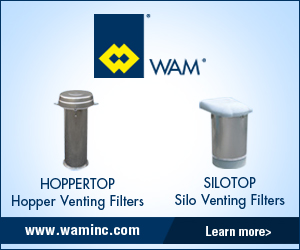


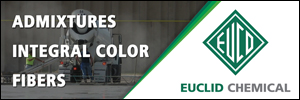

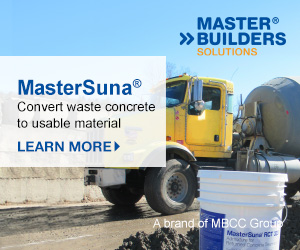
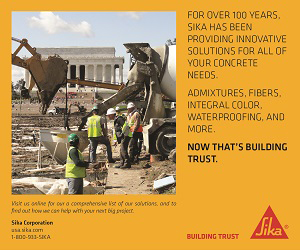
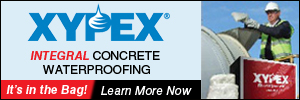
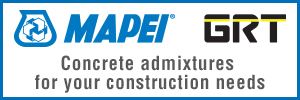

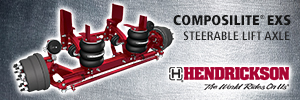
_Sept13.jpg)

